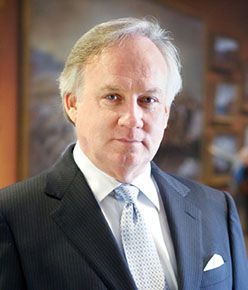News
Trademarks in the Animal Kingdom
 What happens when lions, tigers and jaguars need to protect their trademark? First, they roar. Then they call Frank Jakes.
What happens when lions, tigers and jaguars need to protect their trademark? First, they roar. Then they call Frank Jakes.
Firm client Big Cat Rescue, is a not-for-profit charitable sanctuary dedicated to saving and caring for abused big cats. For example, when a tiger is found living in deplorable conditions at a rundown roadside attraction, Big Cat Rescue may be called upon to “rescue” the animal and provide a humane habitat. As a component of its mission, Big Cat Rescue is a nationally prominent advocate against private ownership of exotic cats and in-captivity breeding. It is this advocacy mission that often causes conflict.
Such was the case when Big Cat Rescue began speaking out against a traveling exhibition of exotic cats that visited malls and fairs in the Midwest offering to allow the petting and photographing of young tiger cubs for a price. Big Cat Rescue learned that this exploitative enterprise was the brain child of Joe Schreibvogel, operator of an animal park in Oklahoma known as GW Exotic. Schreibvogel claimed that the traveling show was crucial to fund the operation of his park and the care of his animals. Yet, since young tiger cubs can only legally have contact with humans for a period of a few weeks, Schreibvogel engaged in rampant breeding so that he could wrest these small cubs away from their mothers to go on the road and make money. Of course, once the cubs got to be a couple of months old, they lost their commercial value and would either be sold to private owners or create more overhead for the GW Exotic Animal Park, since life expectancy is 15-20 years. Moreover, conditions on the road for these young cubs were deplorable.
Big Cat Rescue mobilized its supporters and sought to sway public opinion against this abusive exploitation. This advocacy caused many malls and fairs to rethink their invitations to the exhibition. Not surprisingly, Schreibvogel didn’t like it when these malls refused to allow his lucrative show. In retribution, Schreibvogel decided he would rename his exhibition “Big Cat Rescue Entertainment.” By so doing, he sought to damage the reputation of the Firm’s client by causing donors and supporters of Big Cat Rescue to mistakenly believe that Big Cat Rescue was now engaged in the very exploitation of animals that it supposedly argued against.
Big Cat Rescue turned to Frank Jakes who developed and pursued a litigation strategy that not only secured an injunction against the trademark infringement, but won an award of over $1 million.
And now, a loud purring sound can be heard emanating from Big Cat Rescue.

